
Find Help
More Items From Ergsy search
-

Is there a difference between the basic State Pension and the new State Pension?
Relevance: 100%
-

How is the basic State Pension calculated?
Relevance: 98%
-

How do online pension calculators help?
Relevance: 97%
-

Do I pay tax on the basic State Pension?
Relevance: 97%
-

How can I find out my specific state pension age?
Relevance: 94%
-
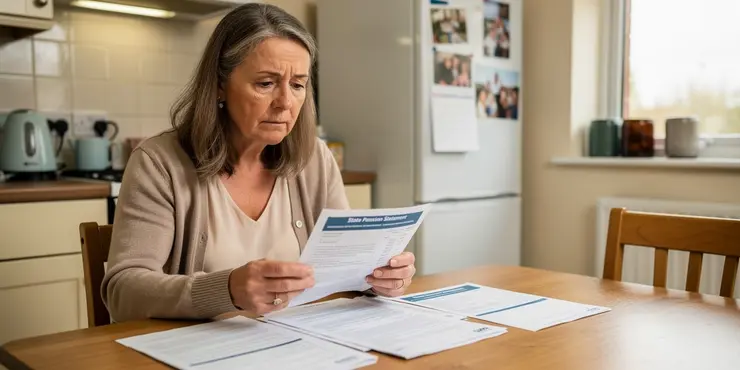
Will I qualify for the new state pension?
Relevance: 91%
-

Are there any changes to the state pension age in 2026?
Relevance: 90%
-

How much extra will I get if I defer my basic State Pension?
Relevance: 89%
-

Will the state pension amount change with the age increase?
Relevance: 88%
-

What is the state pension age in the UK in 2026?
Relevance: 88%
-
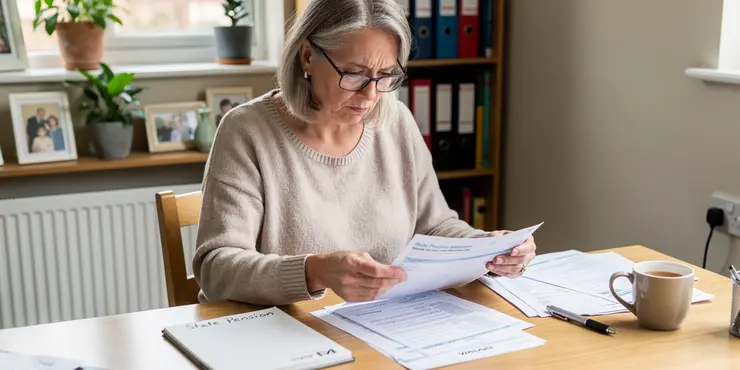
How do I claim the basic State Pension?
Relevance: 88%
-
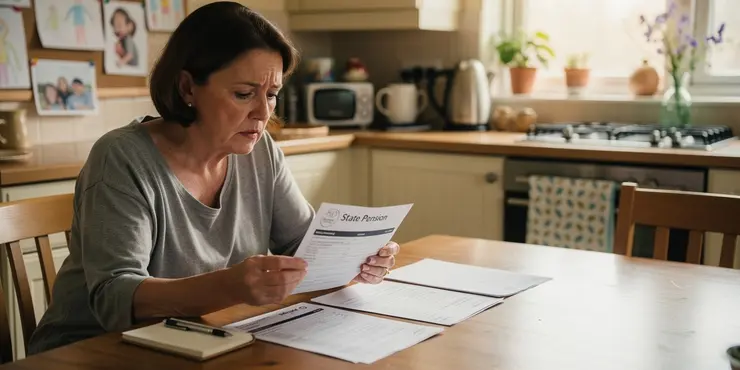
State Pension UK | How much will I get? | WILL IT LAST FOREVER?!?
Relevance: 86%
-

Can I defer my basic State Pension?
Relevance: 85%
-

When will the state pension age increase to 67?
Relevance: 84%
-

Is the basic State Pension enough to live on?
Relevance: 84%
-

What are the state pension age changes in 2026 in the UK?
Relevance: 84%
-
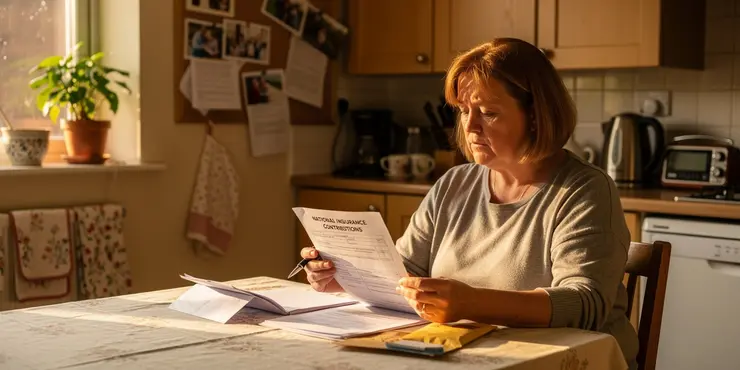
Who is eligible for the basic State Pension?
Relevance: 84%
-

How is the pension calculated for firefighter schemes?
Relevance: 82%
-

Can my spouse inherit my basic State Pension?
Relevance: 82%
-

Who will be affected by the state pension age changes in 2026?
Relevance: 81%
-
Can I get the basic State Pension if I’m self-employed?
Relevance: 81%
-

What is the new planned state pension age after 2028?
Relevance: 80%
-

How many National Insurance contributions do I need for the basic State Pension?
Relevance: 79%
-

What age group will first see the state pension age at 67?
Relevance: 78%
-

How much is the full basic State Pension per week?
Relevance: 77%
-

How often does the UK government review the state pension age?
Relevance: 77%
-

What demographic factors influence changes to the state pension age?
Relevance: 75%
-
Are there credits available for the basic State Pension if I can't work?
Relevance: 74%
-

Can I receive the basic State Pension if I have less than 30 qualifying years?
Relevance: 73%
-

Is there any assistance for those who cannot work up to the new state pension age?
Relevance: 71%
-
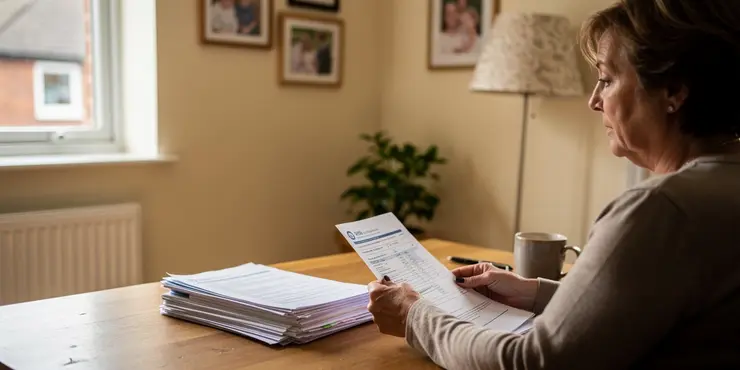
What is the basic pension in the UK?
Relevance: 71%
-

Will I lose my basic State Pension if I start working after reaching State Pension age?
Relevance: 65%
-

How do I calculate my tax bill?
Relevance: 63%
-

Are men and women's pension ages equalized?
Relevance: 63%
-

Are there free online resources for pension advice?
Relevance: 63%
-
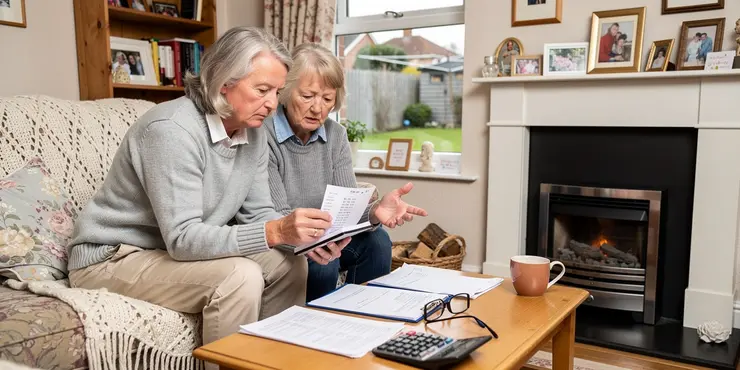
When is the basic State Pension paid?
Relevance: 62%
-

DWP State Pension Age Changes 2026
Relevance: 60%
-

Can I get the basic State Pension if I live abroad?
Relevance: 57%
-

Pension rights for Firefighters in the UK
Relevance: 57%
-

NHS Pensions | All you need to know
Relevance: 57%
Introduction to the Basic State Pension
The basic State Pension is a regular payment from the UK government to individuals who have reached the State Pension age. It is based on the National Insurance (NI) contributions that a person has made over their working life. Understanding how the basic State Pension is calculated can help individuals plan for retirement more effectively.
Eligibility Criteria
To qualify for the basic State Pension, you must have paid or been credited with NI contributions. The minimum requirement is 10 qualifying years on your NI record, although to receive the full basic State Pension, you usually need 30 qualifying years of NI contributions or credits. A qualifying year is one where you have either worked and paid NI or received NI credits, such as for unemployment or certain benefits.
Calculation of the Basic State Pension
For those who reached State Pension age before 6 April 2016, the basic State Pension is calculated based on the number of qualifying years on your NI record up to 6 April 2016. The full basic State Pension is a fixed amount and is subject to annual increases. The amount of pension you receive depends on your NI contributions and can be increased by additional pension schemes or benefits.
As of the 2023/2024 tax year, the full basic State Pension is £156.20 per week. If your NI record does not have the full 30 qualifying years, your pension will be reduced proportionally. Each qualifying year entitles you to 1/30th of the full rate. For example, with 20 qualifying years, your basic State Pension would be 20/30ths of the full rate.
Additional Pension: How It Affects Calculation
For some individuals, there may be additional pension components such as the State Earnings-Related Pension Scheme (SERPS) or the State Second Pension (S2P). These schemes were available before 6 April 2016 and could increase the total amount of State Pension you receive. These are based on your earnings and NI contributions over certain periods.
Conclusion
Calculating your basic State Pension involves understanding the number of qualifying years you have accumulated through NI contributions and credits. It's crucial to check your NI record and ensure you're on track to receive the full amount possible. The gov.uk website offers tools and resources to help estimate your State Pension and plan for the future.
Introduction to the Basic State Pension
The basic State Pension is money that the UK government gives people every week after they retire. You can get it if you've paid National Insurance (NI) during your working years. Knowing how it works helps you save for when you retire.
Who Can Get the Pension?
To get the basic State Pension, you need to have paid or been given NI credits. You need at least 10 years of NI to qualify, but to get the full amount, you usually need 30 years of NI. You get a year of NI when you work and pay NI or if you get certain benefits like unemployment help.
How is the Pension Amount Worked Out?
If you reached retirement age before April 6, 2016, your pension is based on your NI years till then. The full pension is a set amount and it can increase every year. Your pension money depends on your NI years and if you have other pension plans.
For the year 2023/2024, the full pension is £156.20 every week. If you don’t have 30 years of NI, you get less. Each year of NI gives you 1/30th of the full amount. For example, if you have 20 years, you get 20/30ths of the full pension.
Extra Pension Money
Some people might get extra pension money from other plans like SERPS or S2P. These plans were there before April 6, 2016, and they might give you more pension. They depend on how much you earned and your NI during certain times.
Conclusion
To know your basic State Pension, count how many years you have of NI. It’s important to check your NI record to make sure you get as much pension as you can. The gov.uk website has tools to help you check your State Pension and help you plan.
Frequently Asked Questions
Useful Links
This website offers general information and is not a substitute for professional advice.
Always seek guidance from qualified professionals.
If you have any medical concerns or need urgent help, contact a healthcare professional or emergency services immediately.
Some of this content was generated with AI assistance. We’ve done our best to keep it accurate, helpful, and human-friendly.
- Ergsy carfully checks the information in the videos we provide here.
- Videos shown by Youtube after a video has completed, have NOT been reviewed by ERGSY.
- To view, click the arrow in centre of video.
- Most of the videos you find here will have subtitles and/or closed captions available.
- You may need to turn these on, and choose your preferred language.
- Go to the video you'd like to watch.
- If closed captions (CC) are available, settings will be visible on the bottom right of the video player.
- To turn on Captions, click settings .
- To turn off Captions, click settings again.
More Items From Ergsy search
-

Is there a difference between the basic State Pension and the new State Pension?
Relevance: 100%
-

How is the basic State Pension calculated?
Relevance: 98%
-

How do online pension calculators help?
Relevance: 97%
-

Do I pay tax on the basic State Pension?
Relevance: 97%
-

How can I find out my specific state pension age?
Relevance: 94%
-

Will I qualify for the new state pension?
Relevance: 91%
-

Are there any changes to the state pension age in 2026?
Relevance: 90%
-

How much extra will I get if I defer my basic State Pension?
Relevance: 89%
-

Will the state pension amount change with the age increase?
Relevance: 88%
-

What is the state pension age in the UK in 2026?
Relevance: 88%
-

How do I claim the basic State Pension?
Relevance: 88%
-

State Pension UK | How much will I get? | WILL IT LAST FOREVER?!?
Relevance: 86%
-

Can I defer my basic State Pension?
Relevance: 85%
-

When will the state pension age increase to 67?
Relevance: 84%
-

Is the basic State Pension enough to live on?
Relevance: 84%
-

What are the state pension age changes in 2026 in the UK?
Relevance: 84%
-

Who is eligible for the basic State Pension?
Relevance: 84%
-

How is the pension calculated for firefighter schemes?
Relevance: 82%
-

Can my spouse inherit my basic State Pension?
Relevance: 82%
-

Who will be affected by the state pension age changes in 2026?
Relevance: 81%
-
Can I get the basic State Pension if I’m self-employed?
Relevance: 81%
-

What is the new planned state pension age after 2028?
Relevance: 80%
-

How many National Insurance contributions do I need for the basic State Pension?
Relevance: 79%
-

What age group will first see the state pension age at 67?
Relevance: 78%
-

How much is the full basic State Pension per week?
Relevance: 77%
-

How often does the UK government review the state pension age?
Relevance: 77%
-

What demographic factors influence changes to the state pension age?
Relevance: 75%
-
Are there credits available for the basic State Pension if I can't work?
Relevance: 74%
-

Can I receive the basic State Pension if I have less than 30 qualifying years?
Relevance: 73%
-

Is there any assistance for those who cannot work up to the new state pension age?
Relevance: 71%
-

What is the basic pension in the UK?
Relevance: 71%
-

Will I lose my basic State Pension if I start working after reaching State Pension age?
Relevance: 65%
-

How do I calculate my tax bill?
Relevance: 63%
-

Are men and women's pension ages equalized?
Relevance: 63%
-

Are there free online resources for pension advice?
Relevance: 63%
-

When is the basic State Pension paid?
Relevance: 62%
-

DWP State Pension Age Changes 2026
Relevance: 60%
-

Can I get the basic State Pension if I live abroad?
Relevance: 57%
-

Pension rights for Firefighters in the UK
Relevance: 57%
-

NHS Pensions | All you need to know
Relevance: 57%


